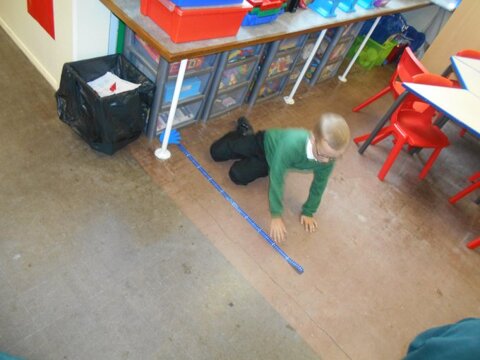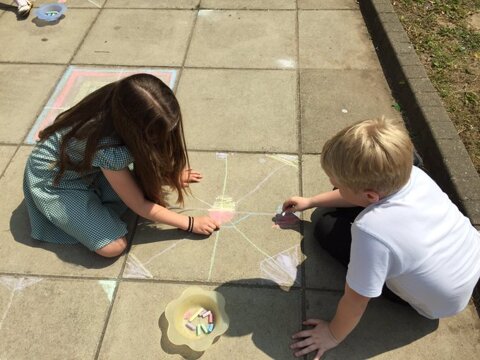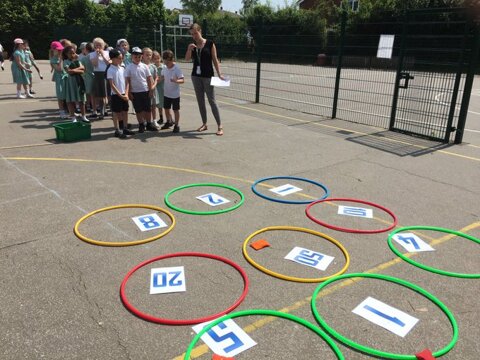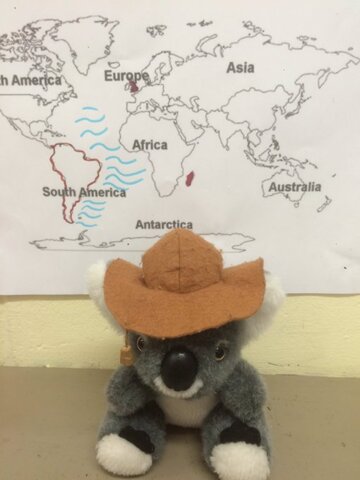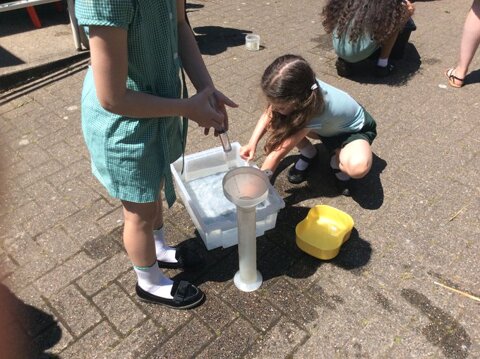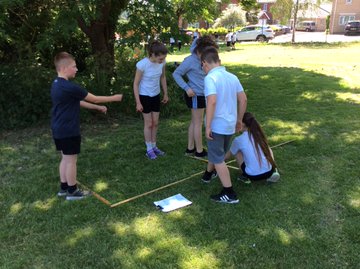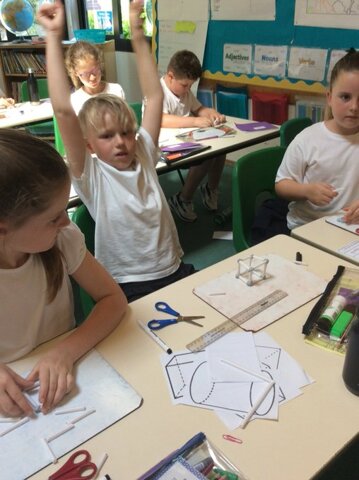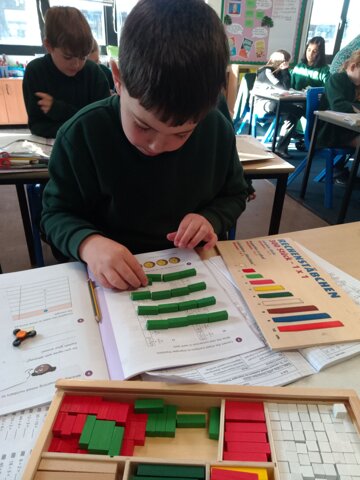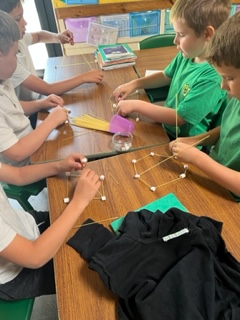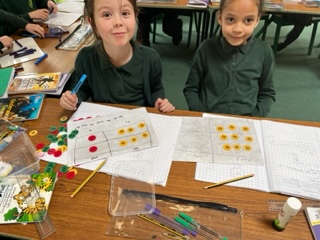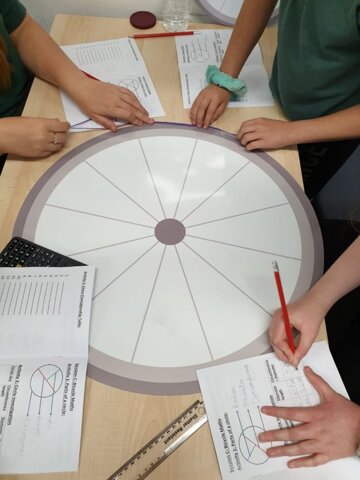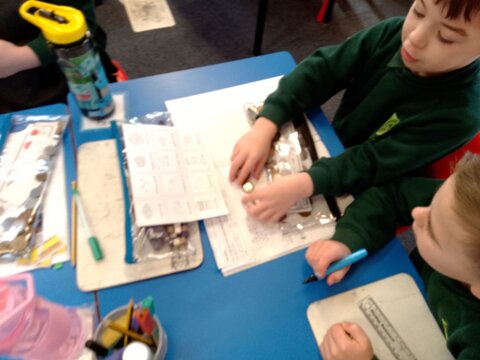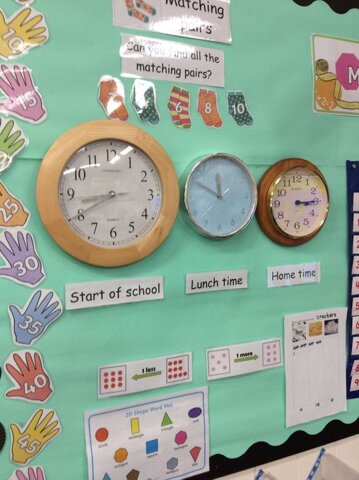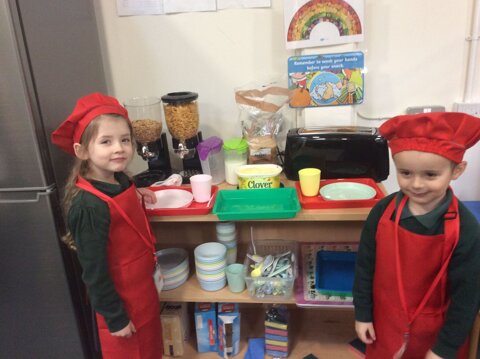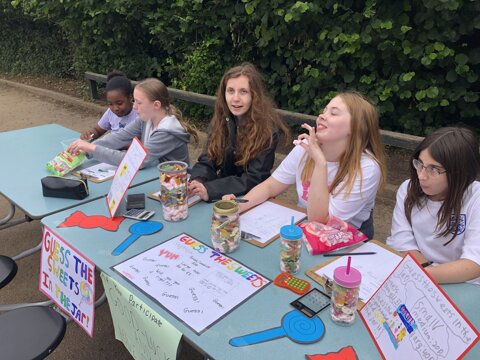Intent
At Gusford Primary School, we aim to equip all pupils with the skills and confidence to solve a range of problems through fluency with number and mathematical reasoning. Children are encouraged to see the mathematics that surrounds them every day and enjoy developing vital life skills in this subject. All teaching follows a mastery approach, enabling children to master a variety of mathematical concepts, build upon prior learning and develop a deep understanding, so that they can apply their knowledge to a range of contexts and become increasingly confident mathematicians.
Implementation
We structure our learning using White Rose Maths’ small step approach, which forms the basis of our long and medium term planning.
We use this because it:
-
provides a coherent learning journey, covering all elements of the National Curriculum in achievable small steps of learning.
-
provides reference for pupils and teachers of what has been taught previously and what is on the horizon.
-
provides clarity and consistency of taught context across year groups.
-
ensures mathematical concepts are presented in a similar way across the school.
-
is aligned with high quality professional development.
-
provides resources which draw out the principles of teaching for mastery. This enables teachers to focus on teaching, rather than gathering resources.
We believe the concrete, pictorial, abstract approach is crucial to building pupils’ understanding of mathematical structures and teachers use a variety of manipulatives to support this throughout a unit of learning.
Through CPD, a range of further resources have been shared to allow teachers to plan lessons which match the needs of their pupils, including NRich, Testbase and Deepening Understanding.
We supplement our teaching with regular retrieval practice to ensure pupils can readily remember what they have learnt, including the regular teaching of number facts and times tables to aid fluency and accuracy.
Reception staff use the Mastering Number program to develop pupils’ understanding of number, including subitising and the structure of numbers. The EYFS measure, shape and spatial reasoning objectives are taught separately. Year 1 and Year 2 classes use the Mastering Number program to support pupils’ number fluency further, in addition to the Maths lesson.
Across all mathematics lessons, learning is adapted to suit the needs of all pupils, including SEND pupils and to challenge more able pupils. A few of the many approaches may involve adaptations such as decreasing the quantity of questions through chunking, using resources for support such as 100 squares, times tables mats and concrete mathematical resources, or starting a mathematical concept at a stage appropriate step in order to close the gap and reach age appropriate learning.
Impact
Pupils at Gusford speak highly of their enjoyment of maths - they experience success in developing their understanding through carefully sequenced small steps, respond well to being challenged with different problems and enjoy developing vital life skills. Teachers use regular formative assessment as well as regular verbal and written feedback to ensure all pupils are appropriately supported and challenged; they provide pupils who have a secure understanding with a range of complex, rich and sophisticated problems before accelerating through new content. Summative assessments are also used to inform planning - teachers use PIXL termly assessments to identify gaps in pupils’ knowledge and plan regular opportunities to reinforce and practise key skills.
Cross Curricular links
-
Science: gathering and presenting data in graphs and charts, analysing statistics, measuring time and temperature
-
Geography: reading and analysing data presented in different ways
-
Computing: logical thinking, working systematically
-
History: Early number systems (e.g. Roman Numerals), dates, ordering events
-
Art: shape (including reflection, translation, repeated patterns), measure
-
Reading: the ability to read and understand a problem, identifying the key information
-
Spanish: learning numbers in Spanish
Maths Documents

